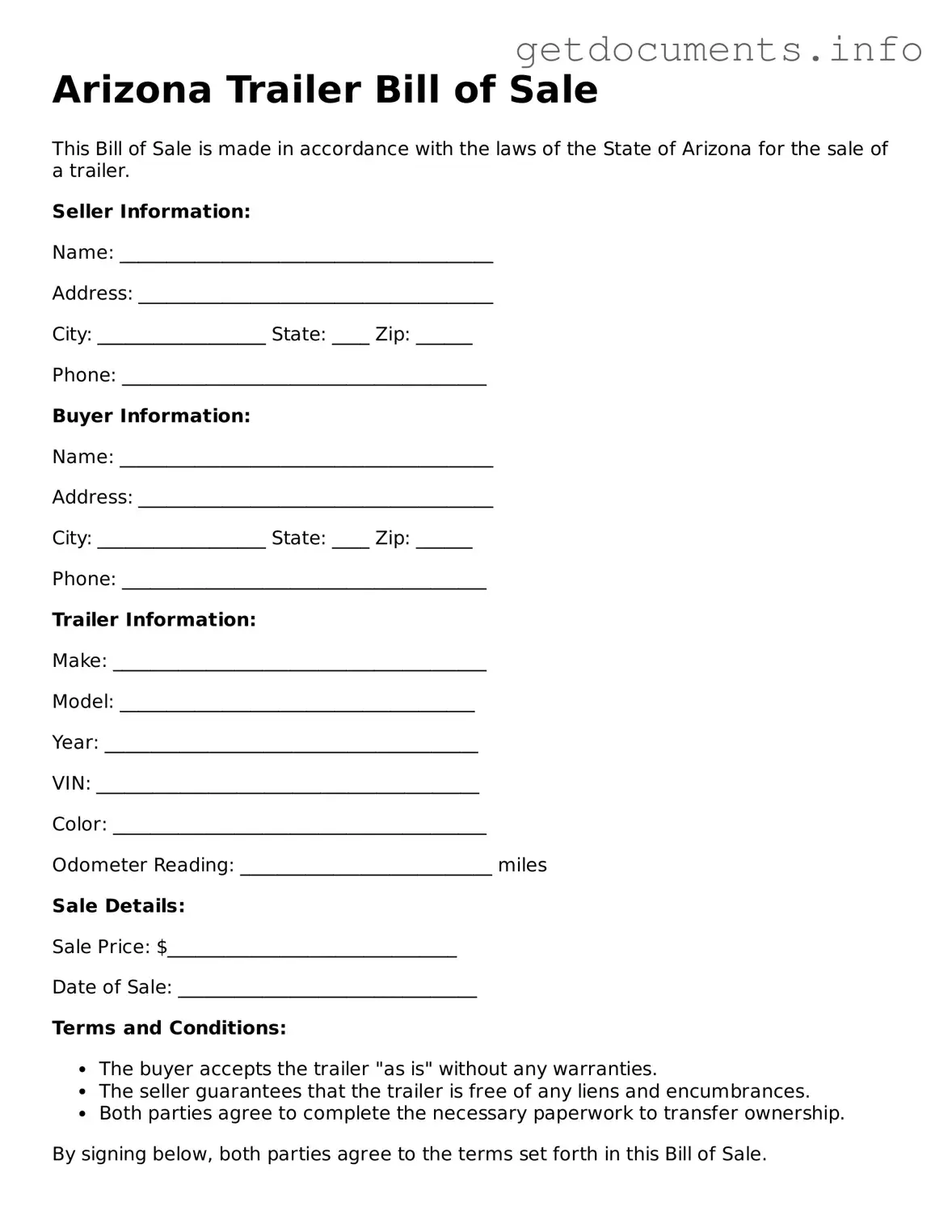Free Trailer Bill of Sale Template for Arizona
The Arizona Trailer Bill of Sale is a legal document that facilitates the transfer of ownership for a trailer from one party to another. This form outlines essential details such as the buyer and seller's information, trailer specifications, and the sale price. Completing this form is crucial for ensuring a smooth transaction and proper registration.
Ready to fill out the form? Click the button below to get started.
Access Trailer Bill of Sale Editor

Free Trailer Bill of Sale Template for Arizona
Access Trailer Bill of Sale Editor
Got places to be? Complete the form fast
Fill out Trailer Bill of Sale online and avoid printing or scanning.
Access Trailer Bill of Sale Editor
or
⇩ PDF File
